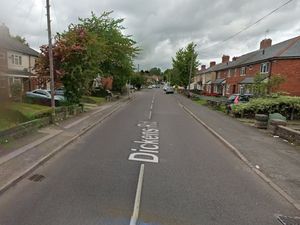Wolverhampton Council to write off more than £200,000 of debts
More than £200,000 worth of debts including unpaid council tax or overpaid housing benefits to Wolverhampton residents are set to be written off.

Wolverhampton Council’s cabinet will meet on Wednesday, July 29, where it will receive its first financial report of the year, looking into the health of its budget for 2020/21 so far.
And as part of that, authority bosses will be asked to agree to write off thousands of pounds owed to the council by residents and businesses in the area.
The report to cabinet said debts are only written off as a last resort and they can be pursued again in future if circumstances of people involved change.
It also said provisions are made within the budget to deal with good and bad debts.
Overall, the council has had to write off 321 council tax debts totalling £117,741.86 and the cabinet is being asked to approve one valued at £5,203.61.
In terms of non-domestic rates – or business rates – 20 write-offs totalling £77,099.28 have been occurred. Two of those, worth £13,115.60 combined, will need cabinet approval at the meeting.
Error
There are also sundry debts owed to the authority for a range of services the council has provided to individuals and businesses that will not be recovered.
In this area, 41 debts have been written off, amounting to £21,923.34.
The report also said that housing benefit overpayments might occur for a number of reasons including fraud or error.
Government guidance states overpayments should be written off where recovery would ’cause hardship, where the debtor has died or cannot be traced’.
The authority also receives Government subsidy for overpaid housing benefits of between 40 per cent and 100 per cent depending on the circumstances in which it arose.
A total of £12,151.24 will be lost through 10 overpayments of housing benefits, one of which is valued at £6,910.76 and requires cabinet approval.
The report said: “Debts are only written off as a last resort, when all feasible recovery action has been exhausted.
“If the situation surrounding an individual case changes in the future, steps would be taken to pursue the debt, despite the debt having been written off.”





